
Insight into childhood and how early trauma spills over into adulthood is an important facet of psychology—one of the most important.
I had not previously considered all of the implications of what violent and coercive parenting can do to children from a psychodynamic or Freudian perspective. After reading, “For Your Own Good,” by Alice Miller, I gained a clear understanding of the psychological damage that results from punitive forms of parenting.
Miller’s exploration into totalitarian parenting put tears in my eyes. She was able to instill in me a further conviction that all forms of “child-rearing” and “pedagogy” are terribly destructive for a child’s psyche.
The Poisonous Pedagogy and Abreaction
Miller said the truth behind the poisonous pedagogy is that its teachings benefit parents and not children. It makes parents feel less pained about their past. Parents thus take vengeance against their own parents via their children. This is a form of abreaction, which is an expression of a previously repressed emotion.
In other words, parents use their kids as outlets and scapegoats for their past suffering. This is what perpetuates the vicious cycle of child abuse. Miller said:
The reason why parents mistreat their children has less to do with character and temperament than with the fact they were mistreated themselves and were not permitted to defend themselves (Miller, 1983, p. 105).
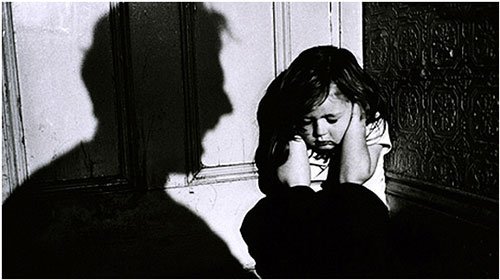
People May Not be Naturally Violent
Even though Miller criticizes parents, she does not buy into the notion that people are naturally evil. Miller takes a stance against the idea that people are inherently bad.
I agree. I am of the mindset that violence is a result of nurture and parent-child relationships. Although, considering modern evidence, it is clear that some genetic basis in personality control levels of violence, but the psychological impact of the poisonous pedagogy is clear.
The literature on spanking is replete with evidence that hitting children causes harm to the child’s brain and can lead to criminality and self-destruction through drugs.
There is almost no room left for counterargument. All that remains is getting people on board with truth, but I am not opposed to considering and weighing other evidence. It is just that current facts against mistreating children are legion, and they are near-indisputable.
Children Have been Seen as Less than Human
Miller bolstered her arguments by examining specific case studies and pedagogical texts of the 18th and 19th centuries. I was surprised to learn that throughout history it has been customary to see children as less than human, as evil little wretches in dire need of constant subjugation and punishment.
The goal of these child-rearing texts was to stamp out willfulness in children, to crush their spontaneity and spirit --- to make them absolutely obedient.
At first, I was upset that Miller quoted these pedagogical works at such length, because it seemed like she was not going to elaborate from her own perspective. However, by the end up the book, I understood why she delved into the aforesaid texts: to show that children have rarely had rights or been treated with dignity.
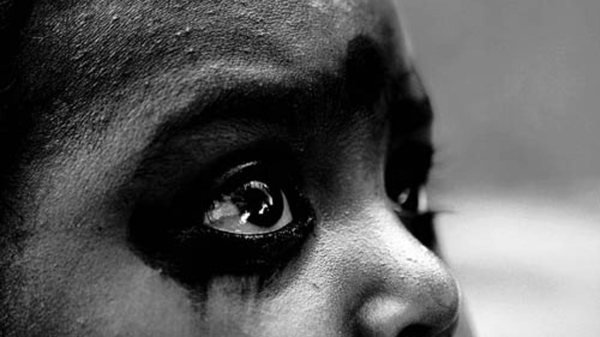
Psychohistory: The Perennial Mistreatment of Children
Miller delved a bit into the controversial subject of psychohistory, and the work of Lloyd DeMause. Psychohistory is a controversial topic and it is not taught at any major university as part of coursework.
This field of study asks two pertinent questions: what psychological reasons cause people go to war? What caused things like human sacrifice and witch burning?
The answer from psychohistorians has been unbearable for most people, so their responses have been pushed into the recesses of academia and censored. Their response is jarring.
Throughout time, most "civilizations" have treated children poorly. The further back one explores the worse children have been treated. Many early civilizations also practiced culturally sanctioned infanticide. Children have been a particularity detested segment of society as a result of cultural rituals and mores, and the state of society has suffered as a result.
Parent's Believe Violent Parenting is "For Their child's Own Good"
Another aspect of pedagogy that I never considered is that when parents administer violent teachings on their kids, they destroy their ability to express themselves emotionally.
Miller pointed out that even though parents act cruelly towards their children, they do not realize they are doing it. It is not purposeful. They have no clue it is destructive because they were taught themselves that what was done to them was for their own good.
Thus, they unthinkingly repeat the sins of the past by making the next generation suffer in kind. This is why some people grow into emotionally unstable adults, and have blank spots in their memory about their childhood.
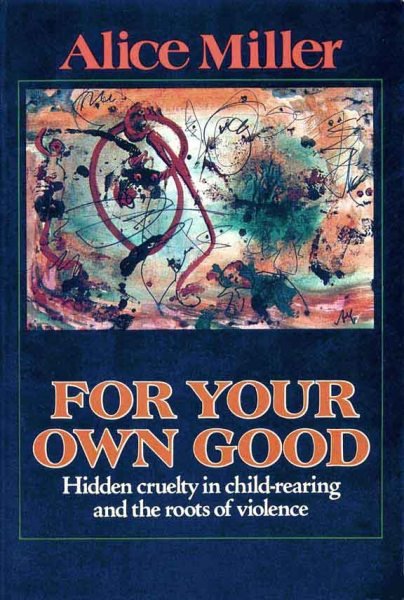
Parent's Destroy their Children's Emotional Circuitry
Pedagogical violence also happens to children at such a young age that they do not even consider defending themselves, because they internalize their parents love them and maltreatment is normal.
However, when children’s spirits are crushed to this extent, they lose the ability to healthily emote and share genuine emotions. It is no wonder that so many people develop psychopathy and other mental disturbances.
If they were raised under the guiding principles of pedagogy, it is likely they never knew what was happening to them. Their empathy circuitry was obliterated in the process.
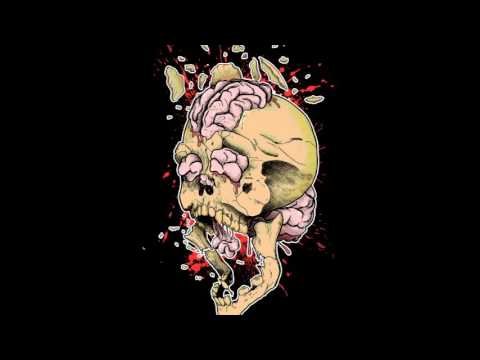
Empathy Erosion in Children; The Good of Nonviolent Parenting
I read a book that validated my view called “The Science of Evil: on Empathy and the Origins of Cruelty” by Simon Baron-Cohen. In a part of this book he examined how controlling parenting styles alter the empathy circuitry in the brain, leading to empathy erosion, which creates the sociopath or psychopath.
When I compare Alice Miller’s psychological work with Cohen’s neurological studies, it makes sense that empathy circuitry and child-rearing go hand-in-hand. Horrible child rearing can actually create evil people.
This insight has made me a firm believer of the promise that wholesome, nonviolent parenting can heal the world.
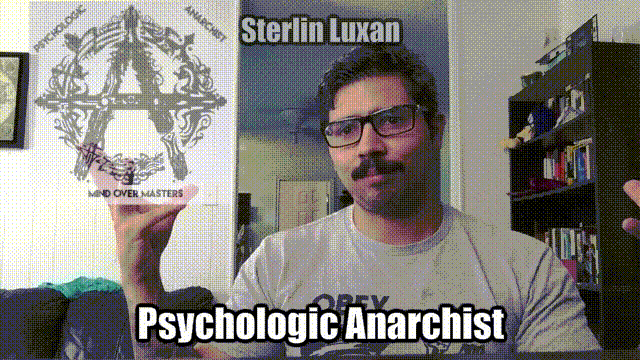
Sterlin Luxan is a visionary thinker, cryptocurrency junkie, connoisseur of psychology, an MDMA high priest, and the Mr. Rogers of Anarchism. He writes for bitcoin.com, runs a consultancy business in the crypto space, and public speaker. He created the doctrine of relational anarchism and contributes to many causes in the thriving liberty ecosystem.
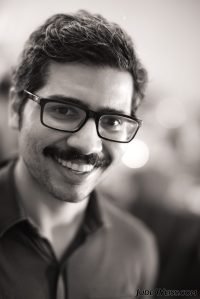

I'm totally on board with you on this article. I came the same conclusion, but from a different perspective. I read For Your Own Good about 20 years ago. I think from that point on, I reached the conclusion that there is no good and evil. There are those people who are confused (evil), and less confused (those who we might describe as good).
By chance, I came upon the work of Dr. Ross W. Greene (whom I've written about extensively in my blogs). Dr. Greene has worked with kids for more than 38 years and sums up their behavior as follows: "Kids would do better if they could.
That is to say, that kids exhibit challenging behavior when frustrated by the problems they encounter as they grow up. They "have difficulty" with reading, doing homework, doing the chores around the house, or just being nice to other people. It's not a lack of motivation, it's a lack of skills.
Teach kids the skills they need to solve those problems, and the challenging behavior goes away. We teach those skills to kids by collaborating with them to solve those problems as they come up. It's a partnership.
Dr. Greene wrote two books that totally changed my outlook on people:
The Explosive Child
Raising Human Beings
Both of those books have evolved my thinking from identifying the problem as Miller did, to solving the problem. I appreciate reading your article because now I see that more and more people are coming around to this way of thinking.
Thanks.
Really love this article, I can not see children tear up, it kills my insides especially if they were crying because of a spanking, Its a major believe that is no way to bring up a child and reading ur article proofs it to me all the more, which is kind of freaking me out at the moment.
As for the book and ur thoughts that this is brought with the parents being brought up in the same way I can relate to and also completely disagree, I think each person would realize how bad it felt being mistreated as a kid and should not n try with all heart not to pass those same feelings on to their own kids.
I was hesitant on leaving my thoughts on this. I have to say, that I don't fully agree with the excuse, that parents are taking their childhood trauma out on their own child/children. Some feel spankings are just a last resort, because they do not have the resources on how to get the child under control. That does not mean they were abused as children. When I spanked my child,(which were rare), I did not think about my own childhood. I was physically, emotionally, verbally and sexually abused. Because I know it was wrong, I vowed to never do those things, nor let anyone else, to my own child, or any child. It is true that some do not pay heed that what they are doing is wrong, and probably are taking it out on kids. There are some parents who had great childhoods, but had felt the need to spank. There is a huge difference between abuse and a spanking to get a child under control, when all else failed.
One of the things they teach in college research classes is that you cannot use yourself as a yardstick: you aren't a big enough database. Sounds to me as if you are avoiding your own feelings of guilt, explaining why it was okay to do what you did. Hey, we are all only human, and we make mistakes.
That said, a well-researched book has a lot more weight behind it than a personal opinion.
I was in no way avoiding feeling of guilt. As my child was still young, I found other means of correcting the behavior, because I learned it had more impact than a few swats. and I did feel guilty for bringing pain, even if it happened only a few times. But that doesn't mean I was hitting because of what I went through. I just feel like people need an excuse to blame reactions on anything. I also know of someone who grew up abused, and they never put a hand on their child.
If I knew then what I know now, on other means of helping them get control behavior, I would have done things different.
I feel so happy each time i see another person, reading and trying to look for alternative ways of raising children. Everything you said based on the work of this authors is super important. In all of the time i have being studying about parenting: Attachment and democratic parenting styles, i have come to a conclusion which is true for most parents (not all of them): They love their children more than anything but most of them lack the right tools to discipline them in a way that doesn't violate their human rights, but given the right information and some other tools, most parents are willing to change their ways. Most parents after learning this new ways, find also the effectiveness and benefits for their families that comes with treating your children with respect according to their necessities and developmental stage.
Great comment @lifestylebyjeli . Especially the last part, and that is what makes me wish I had better knowledge back when my child was younger. Even though I had only spanked a few times, it crushes my heart to know I caused pain, regardless of how few times I resorted to it. I was a single parent, and no parent friends, so I did not have the resources. If I had to do it all over again, I would not spank, no matter what I may have been through for correcting children's behavior. To me, a few spankings don't add up to abuse, but potential is there to turn to it.
@pixiehunter it is hard to be a single parent, you had to think and weigh the potential consequences of every action by yourself, but you did and still do everything you can with the resources available for you. I am so happy that you decided to share your story and I am grateful because I know how hard maybe is for you to tell us that you have spanked your child who is the person you love the most! Now you have more resources and what's most important the will of growing better everyday.
Long ago, I used to be on board with the "hit them until they correct course" method, perhaps due to my own upbringing. (Please don't misread, I don't mean like brutal, damage causing engagements, just spankings and the like)
What changed my mind was having a child. The first time I went to spank him, I felt so damn bad. Looking into his eyes and seeing the fear and hurt from what he could only perceive as betrayal. It was too much.
The other thing I have been considering lately is, when you spank or harm a child because they don't obey, you instill in their minds that "authorities" have the power or even the "right" to inflict harm, you lock them into a mentality that says it's ok for the "powerful" to harm those weaker. That it's ok for men and women in government costumes to inflict violence upon you or anyone else because of "non-compliance".
I don't believe any of those things. I believe the opposite in fact.
Thanks for the book suggestions! Now I need to find out how to trade my Crypto for books.
Two heck of a people to be picked as a subject matter as well. Sounds like a very interesting read. I'll be checking it out soon. Thanks for sharing.
Just leaving a comment as bookmark. Love what I've read so far.
nice post please visit my blog.My new post:
https://steemit.com/softwhere/@doneshshrestha/5-apps-that-will-make-your-vacation-10x-better ,Upvoted
My parents spanked on a regular basis when I was a child. They never went beyond three spanks, but it was usually on a bare bottom with a belt. One of my earliest memories is of me crouched behind the playroom door, bawling in terror as my older brother was being spanked in the next room. I discovered a few years ago that he is a full-blown narcissist and have been wracking my brain ever since to figure out how this happened. I suspected the spankings were behind it. Definitely going to be reading both those books!
I have suffered from this in my childhood. It was always difficult to form any kind of emotional bond with other children, friendships etc. I was always the odd kid. I grew up way too soon. Later I learned that my parents also had suffered the same way. I hope that with learning more about this and trying to understand damages done to my psyche I will not pass this to my children one day (I don't have children yet) in any shape or form. Thank you for writing this article and sharing your findings. Will add this book to my must read.
Hey @sterlinluxan , would love to offer to come onto my podcast sometime.
It is about people doing remarkable things, whether entrepreneurs or not.
Where we talk about what you are doing, believe in and what difference you are making in the world.
It is part youtube channel where the mission is to help 1,000,000 entrepreneurs become remarkable, and the podcast acts as a way to share stories and connect with people.
Here is the playlist of the existing episodes: https://www.youtube.com/playlist?list=PL5CpCNPna6p95oJfKPew0N3ZT0k-khdgg
It is audio only over skype. Would love you to come on the show and talk about yourself. Does this sound of interest to you?
Miller's book sounds fascinating. There is a similar school of thought in pedagogy, identified in a book in 1975 by Dan Lortie. He called it the apprenticeship of observation: the tendency for teachers to uncritically teach how they were taught. Our childhood and school years have an enormous impact on us, and many are unaware of how it affects us as adults unless we are able to critically unpack it and explore it. Thank you for sharing your ideas on Miller's book, Sterlin.